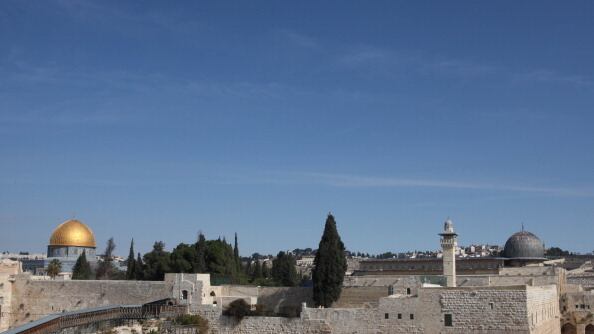As the ceasefire was announced, Peter Beinart asked me what Jerusalemites felt as we exited our own metaphoric bunkers. My first response was that, besides two air raid sirens that had us hunkered down for ten minutes, the war passed relatively easily; there would be no “day after.” As my fifteen-year-old Yoni noted, others suffered “14,000 times” worse than us. But on second thought, Peter was right. We, too, are exiting our own emotional bunkers after eight days of war, tentatively, cautiously, skeptically.
In fact, while chauffeuring my children around that night from basketball practice and ballet, the tzeva adom (code red) calls in the south interrupted the radio broadcast—two hours into the “ceasefire.” And Thursday morning, as Israelis breathed sighs of relief that friends in the south might return to their routines and that their loved ones were not invading Gaza, the skepticism still reigned. Polls varied, with one estimating that as many as 70 percent of Israelis opposed the ceasefire.

Most Jerusalemites expect further rounds—even the Prime Minister’s talking points acknowledge, “There is no quick-fix solution.” Every Israeli I know wants zero rockets and zero tolerance for any future rockets. That is the one metric of success—and it’s what most people in most societies, including the United States, all the European countries, and Canada, take for granted. And after years of relying on the Golden Dome for protection—assuming Hamas, Hezbollah, and Iran would never dare aim anything near the gilded Dome of the Rock—my daughter and many other Jerusalemites want an Iron Dome of our own, deployed nearby. How that loss of security will affect this struggling city, this world-class capital that has too many social problems but even more potential, remains to be seen.
So Israelis are approaching this soberly—but most laugh off reports of celebrations from Gaza. Given how much equipment they lost, given how effectively the IDF wiped out years of military build-up which could have been invested in developing a civil infrastructure, their “victory” marches make the Gazans and their Hamas dictators look foolish, part of the continuing totalitarian detachment from reality that has repeatedly blocked Middle East peace—and improvements in Palestinian life.
Amid contempt for these celebrations and fears of a repeat, some glimmers of hope shined through. The fact that, so far, Winston Churchill’s “jaw-jaw” prevented a bloodier “war-war” is amazing. Egypt’s return as a responsible player is encouraging. Iran’s eclipse in this whole story is even better. And if everyone in the Middle East can learn to use diplomacy, not violence, historians may one day hail this ceasefire between two avowed enemies as a giant leap forward.
As I write, Shabbat in Jerusalem is descending, the quiet is holding, and a heavy rain is falling—considered a good sign in the down-is-up, sun-drenched, water-parched Middle East. We emerge from our metaphoric bunkers, still hugging our children tighter than usual—just ask the embarrassed adolescents among them. And we emerge hoping we have seen the last of death, destruction and trauma on all sides, and that the spirit of diplomacy and compromise will triumph, as we turn in all Middle East matters from war-war to jaw-jaw.





